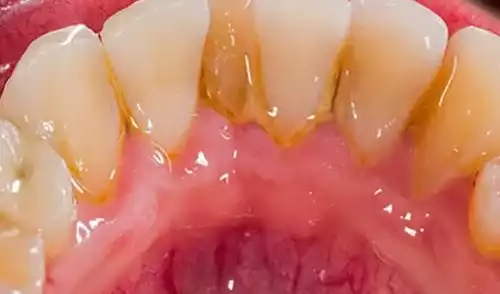Dental subgingival calculus, a formidable foe lurking beneath the gum line, is a major contributor to gum disease. Understanding its impact on oral health is essential. This post will navigate the stealthy world of subgingival calculus, exploring its prevention, diagnosis, and treatment options available with your Coburg dentist at Bright Smile Dental Clinic.
What is Dental Subgingival Calculus?
Subgingival calculus is plaque that has hardened beneath the gum line. It forms when minerals in your saliva crystallise on dental plaque. Unlike plaque, it's tough and adheres strongly to teeth surfaces below the gumline, creating a haven for bacteria and contributing to periodontal problems.
Diagnosing
Subgingival Calculus Early detection of subgingival calculus is crucial. Symptoms may include gum inflammation, bleeding during brushing, or bad breath. Your dentist in Reservoir uses specialised tools for diagnosis, such as dental explorers and x-rays, to detect calculus unseen to the naked eye.
Prevention
Your First Line of Defence The adage "prevention is better than cure" holds true. Effective oral hygiene routines, including twice-daily brushing with a fluoride toothpaste and regular flossing, can prevent plaque formation. Additionally, lifestyle choices such as a balanced diet, limited sugar intake, and cessation of smoking can reduce the risk of subgingival calculus formation.
Professional Treatment
Scaling and Root Planning Once formed, subgingival calculus cannot be removed by brushing or flossing alone. Your Coburg dentist performs scaling and root planning to meticulously clean the tooth root surfaces beneath the gums, removing the calculus and smoothing the area to prevent further bacterial colonisation.
Advanced Treatments In severe cases, more intensive treatments may be necessary. These can include laser therapy, local antibiotic agents, or even surgery. Such procedures are more invasive and typically followed if scaling and root planning are insufficient.
Regular Dental Checkups
It is a Necessity, not a luxury to have six-month regular dental check-ups. Professional cleanings every six months, or as recommended by your dentist in Reservoir, can prevent the progression of subgingival calculus and all the associated periodontal diseases.
Conclusion
Subgingival calculus is a silent affliction that can escalate into serious dental issues. However, with vigilant personal oral hygiene and the support of your Coburg dentist, it can be managed effectively. Don't let subgingival calculus take hold. Visit your dentist in Reservoir at Bright Smile Dental clinic to maintain a healthy, calculus-free smile.











